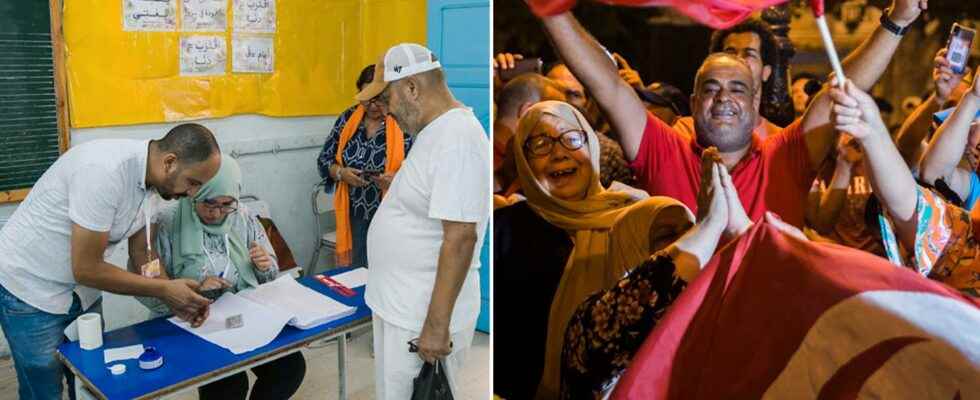Published: Less than 30 min ago
After the Arab Spring, Tunisia became a model democratic country.
Now the country has voted through a new constitution that paves the way towards dictatorship, according to critics.
The final death throes of the Arab Spring were confirmed this morning, when the ballots from a referendum were counted in Tunisia.
Tunisia was the birthplace of the Arab Spring in 2010 and until now had been the only country in the Middle East and North Africa to see the dreams of democracy survive the euphoria of the early years.
But now the country’s new strongman, President Kaïs Saïed, a tall, grim, 64-year-old law professor with a shaved head, has gotten what he wanted.
The citizens of the smallest of North Africa’s countries had in a referendum given him the mandate for a new constitution: Power to the president, parliament turned into a political eunuch, more Arab nationalism and Islam as the state religion.
President SaÏed’s “coup d’état” was not convincing in its popular support. Voter turnout was embarrassingly low, just 27.5 percent. The major parties, including the important Islamist Ennanda, boycotted the election. Opposition politicians and protesters had been jailed. Hunger strikes among them are likely to lead to death.
The population of the capital Tunis preferred to lie on the shores of Carthage on the Mediterranean Sea in the 37-degree heat. Suspicions of irregularities in the election procedure have been expressed.
But that did not change the fact: 90 percent of those who voted gave their support to the new dictator, paving the way for autocratic rule.
“Tunisia”, the country’s leading opposition politician Rached Ghannouchi has said in an interview with the Reuters news agency, “is moving towards a dictatorship, where all the powers of authority are concentrated in a single person.”
Cynical attitude towards democracy
The outcome is in line with what has happened to all the other Arab Spring countries: Hard-line leaders have wrested power from reform parties and protesters. Syria is in a twelve-year civil war in which two-thirds of the population has been forced to break away and flee. Egypt in addition to its dictatorship harder than ever. Libya has been plunged into prolonged chaos. Et cetera.
Everyone is disappointed, apathetic and, during their setbacks, have acquired a cynical attitude towards democracy: It does not deliver.
Anyone who has traveled a lot in the countries of the Middle East knows that there are expectations in the voter base that are wrongly founded.
“People think,” said a political scientist in Cairo, “that democracy will give them a bigger and cheaper loaf of bread.”
In the disappointment that the exercise of democracy is a longer-term process, they turn their backs and give power to a “strongman”, as it is usually called in the British media.
In a recent opinion poll in most Middle Eastern countries for the BBC, a majority of those interviewed expressed greater trust in “strongmen” than in democratically elected leaders. The overall perception was: “A strongman gets something done.” In Tunisia, 81 percent were in favor of a strong leader.
The Arab Spring was born in a small Tunisian town in December 2010, when a street vendor saw himself being pursued by the police and therefore set himself on fire in protest. His martyrdom led to a popular uprising and the ousting of the thieving autocrat Zine al-Abidine Ben Ali from his palace.
Tunisia became a model democratic country. Its parliament voted through the Arab world’s most democratic constitution. Equality and freedom of association were given priority. The Dialogue Quartet was a cross-political group in the country of politicians, trade unions and employers who strove for consensus. Year 2015 was awarded the Nobel Peace Prize.
Today’s President Saïed gained power in fair elections. But he has step by step given himself more power than was intended. For the past year, he has ruled by decree and avoided asking parliament. He says he wants to build “a new and richer Tunisia”.
With Saïed’s victory in the referendum, Tunisia is one step closer to autocracy.
